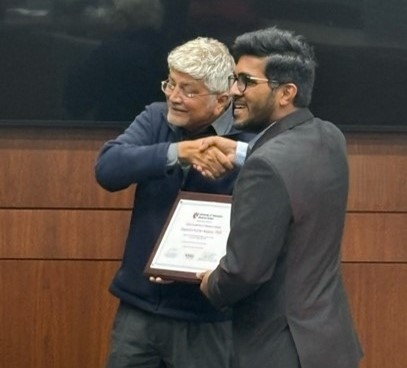Dr. Rajendra Angara discovered a novel Coxiella effector protein, CbEPF1, which is secreted into the host cell cytoplasm and establishes inter-organelle contact sites between the host endoplasmic reticulum (ER) and lipid droplets (LDs). CbEPF1 contains two FFAT motifs, which are typically found in eukaryotic tether proteins that mediate ER-organelle contact sites. Using a combination of microscopy, live cell imaging, protein interaction assays, and mutagenesis, he demonstrated that CbEPF1’s FFAT motifs are essential for establishing ER-LD contact sites and manipulating host LD metabolism. This study is the first to report a bacterial effector capable of inducing inter-organelle contact sites outside of bacteria-containing vacuole, providing a novel mechanism by which C. burnetii manipulates host cell metabolism. This discovery has extended our understanding of how pathogens hijack host cell inter-organelle communication and highlights possible potential therapeutic targets for intracellular bacterial infections.
For this work, Dr. Angara accepted the award from Iqbal Ahmad, PhD, director of postdoctoral education, and chair of the UNMC Scientific Research Oversight Committee.
